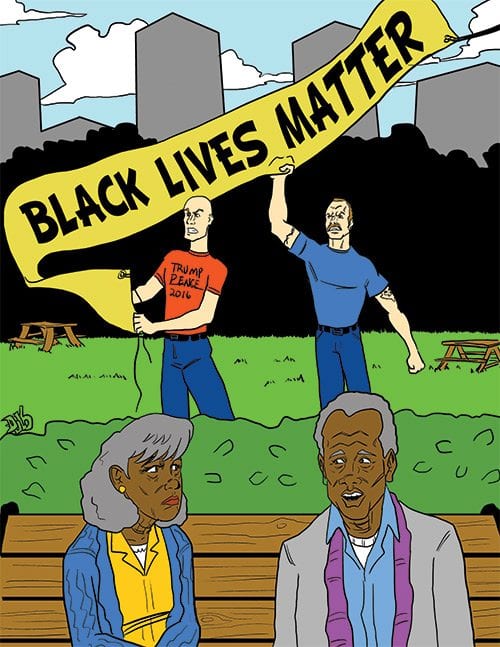
The mention of Black Lives Matter often provokes an adverse reaction among many Americans. For some reason they seem to believe the term implies that the lives of whites are insignificant. They reach that conclusion either out of bigotry or because of a dire lack of knowledge of the violence against blacks throughout American history. At any rate, by denigrating the principle that black lives matter they have implicitly supported the converse concept that black lives are of no consequence. Indeed, the reprehensible record of lynching in the South from the Civil War to World War II is one measure of the national disregard for black lives.
The Equal Justice Initiative, an institute promoting racial equality, published a report last year on its extensive research on the history of lynching. The study was limited to the “most active lynching states in America”: Alabama, Arkansas, Florida, Georgia, Kentucky, Louisiana, Mississippi, North Carolina, South Carolina, Tennessee, Texas and Virginia. The study documented 3,959 lynchings of blacks in those states from 1877 to 1950.
Yes, those black lives mattered.
The study recorded only what they defined as “terror lynchings,” and not deaths that resulted from personal conflicts or the judicial process. Terror lynchings were killings designed to threaten and menace African Americans because of their reluctance to comply with Jim Crow and racial segregation. Lynching was a device to suppress and intimidate African Americans.
While the Equal Justice Initiative research study was limited to those 12 states mentioned earlier, violence and lynchings against blacks also occurred elsewhere. Especially noteworthy was the 1921 race riot in Tulsa, Okla. Pursuant to an alleged sexual assault by a black man against a white girl, whites essentially waged war against the black community. The estimate of black fatalities varied from a low of 55 to more than 300. The primary objective was to destroy a very prosperous black community. The Greenwood District of 35 city blocks was burned to the ground, leaving 10,000 blacks homeless. Family wealth and black lives were destroyed. Yes, black lives mattered in Tulsa.
An unusual aspect of the battle of Tulsa is that the National Guard launched biplanes to bomb black areas with incendiary devices and to aim rifle fire at blacks from the air. This was the first time that an American city had come under air attack. This also happened again in 1985 when the Philadelphia, Pa. police launched an air attack against the black radical group known as MOVE that was fortified in a residential area. The assault killed 11, six adults and five children, and destroyed 65 homes. Once again, police officials assaulted blacks who had been driven to oppose the discrimination and oppression they suffered because of their race.
Here too, black lives mattered.
And now, with technologically-created transparency, the whole world can see the continuing police oppression. This has aroused a general awareness of the historical abuse that African Americans have experienced. The younger generation demands an acknowledgment of the violence that they and their elders have suffered. They call upon officialdom to recognize that black lives matter.
Fair-minded whites are now aware of the continuing disrespect and aggressions against African Americans. It is a modest request that they accept the principle — black lives do matter — even if they question some of the political strategies. It is time for an effort to correct the nation’s tolerance of bigotry to create a spirit of unity that will strengthen America’s position in the world. This will benefit all citizens, black and white.






